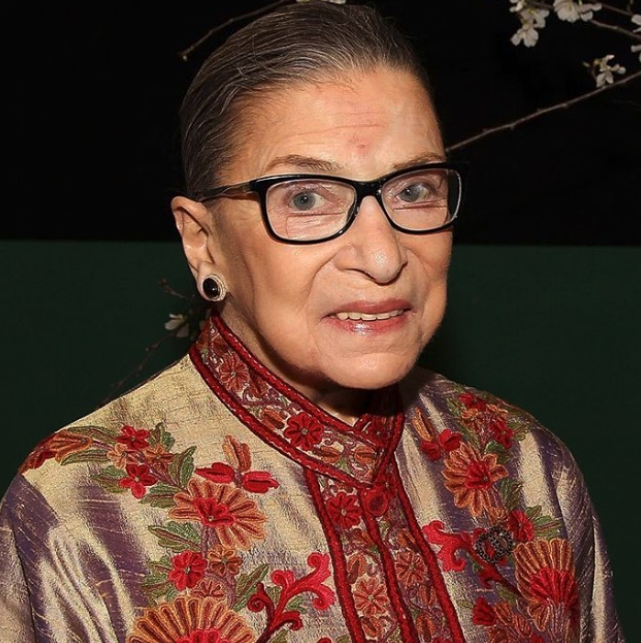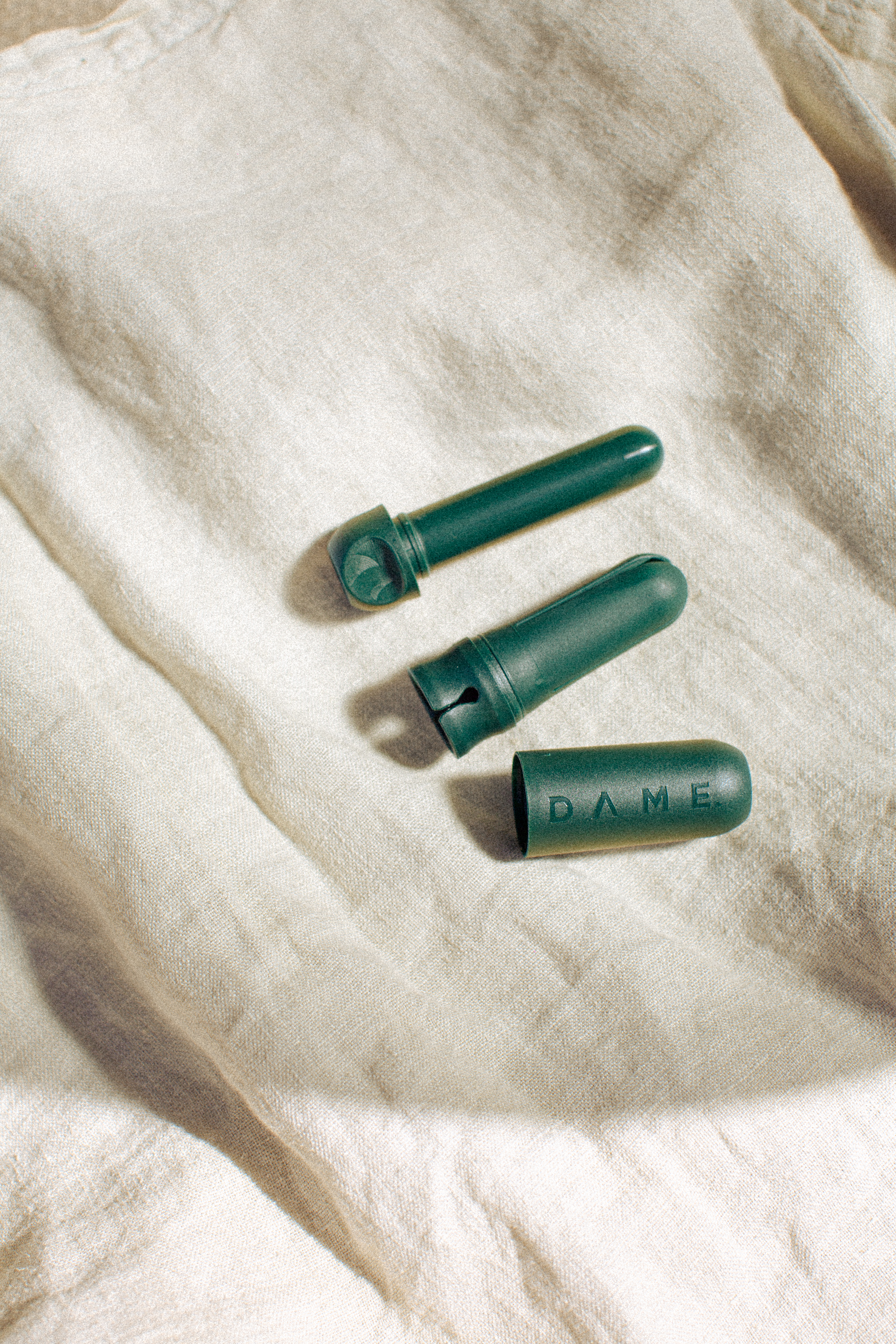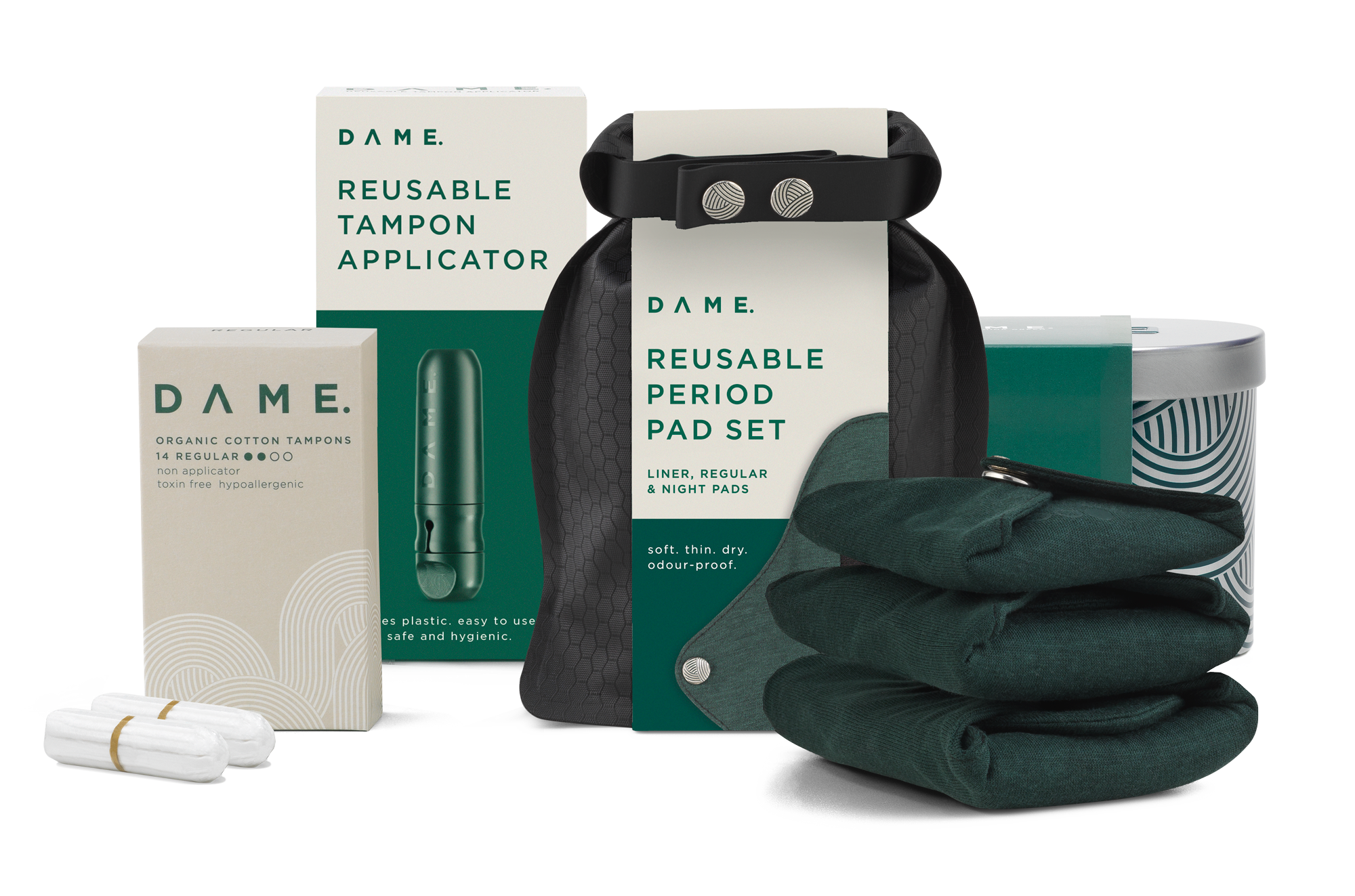“Our bodies, our lives, our NHS” is the rallying cry of the Ginsburg Women’s Health Board (GWHB), set up in early 2021 By Mika Simmons and Nimco Ali OBE to eliminate the gender health gap in the UK. Named after the late, great Ruth Bader Ginsburg, the board channels the pioneering spirit of the feminist US Supreme Court judge and icon.
According to the WHO, the UK has the largest female health gap of all 20 countries in the G20. It’s also the 12th largest globally. There’s a difference of 38 places between where UK men (87/156) and women (125/156) rank globally amongst their peers across different health and wellbeing categories. Given the UK’s prominent place on the world medical stage, especially demonstrated by the vaccine roll-out, this discrepancy just cannot continue.

Thank goodness then for incredible activists Ali and Simmons who are fighting for change on behalf of all women in the UK. To date, the board has worked directly with Health Secretary Matt Hancock and the Department of Health on a new Women's Health Strategy. "We have just completed supporting the Government data collection drive that finished last week and I believe we got over 100k responses," explains Simmons.

The GWHB’s goal is to deliver equality and justice by helping the Government shape a more efficient and effective healthcare system that better protects the welfare of women across all demographics, similar to the work of Mandu Reid at the Women's Equality Party. Their manifesto centres on three key pillars: analysis of data, prevention and protection and improved public education to enable women to know their bodies better.
The board is focussing first on three key campaign policies for the Government to consider, which would deliver a more equal and effective healthcare system for women.
The GWHB was founded by Nimco Ali, the prominent social activist and founder of The Five Foundation, a global partnership committed ending female genital mutilation, and Mika Simmons, actress, filmmaker and founder of The Happy Vagina and the Lady Garden Foundation.
Senior NHS consultant and fertility pioneer Dr Geeta Nargund supports the GWHB with her medical expertise, alongside our very own DAME co-founder Celia Pool, and:
- Sarah Sands – Chair of the Board of Directors of Bright Blue, the independent think tank for liberal conservatism, and Former editor of BBC Radio 4’s Today and The Evening Standard.
- Charlotte Ross – Deputy editor of The Evening Standard
- Leith Clark – Founder and Editor in Chief of Violet Book, Style Director-at-Large at Harper’s Bazaar UK and Founder and former Editor-in-Chief of Lula Magazine.
- Deborah Joseph – GLAMOUR UK Magazine Editor-in-Chief.
- Helena Lee – Acting Deputy Editor at Harper’s Bazaar and Founder of East Side Voices, a platform celebrating the brightest East and Southeast Asian talent in Britain today.
- Natasha Pilbrow - Co-founder of LeSalon, a premium beauty booking app providing quality services in homes, hotels and offices across London while empowering women in the beauty industry to hone their skills, increase their earning potential and work flexibly
- Bea Appleby - Former editor of Girl Talk magazine, and the current editor of The Female Lead.
- Caroline Allen – Head of LBC Westminster
- Claire Cohen – Associate Features Editor at The Daily Telegraph, heading up the Telegraph Women channel.
CALL TO ACTION: 3 URGENT POLICIES
1. Fast-track women’s gynaecological referrals
Currently, unless women’s gynaecological issues are classified as suspected cancer, the referral window for secondary treatment can be up to 18 weeks, resulting in more serious conditions being missed or diagnosed too late. Women’s health issues are also often side-lined or overlooked; research has shown that women wait an average of 7.5 years between first seeing a doctor about their symptoms and receiving a diagnosis of endometriosis. The board is calling for the government to reduce the referral time from primary to secondary care to a maximum of 3-4 weeks, and to review the current symptoms list as well as the duration symptoms are expected to be endured before being escalated.
2. End the UK’s IVF postcode lottery
Despite the fact 1 in 6 couples now encounter problems with their fertility, currently in England only 12% of Clinical Commissioning Groups (CCGs) offer the 3 cycles of IVF as recommended by NICE for women under 40, down from 24% in 2013, with some offering none whatsoever. Thousands are denied funding for IVF due to where they live. The board are suggesting the creation of a centralised system that ensures women have equal opportunity to access IVF treatment, no matter where they live and to mandate that CCGs adopt a National Tariff to cap the price they pay per IVF cycle treatment. This will enable the NHS to treat more women within the existing budget.
3. Introduce fertility education to the secondary school curriculum
One of the key influencing factors for the growth in reliance on IVF is a fundamental lack of awareness as to the range of factors that can impact reproductive health. The board are therefore calling for the government to include fertility education within the secondary school curriculum, to empower young people with the knowledge required to make positive lifestyle choices that protect their fertility and prevent avoidable infertility issues.
DAME co-founder Celia Pool knows from personal experience how behind the times the health service is when it comes to women’s bodies. “I was told it was fine to be on the contraceptive pill for 10 years, as long as I wasn’t getting pregnant,” Pool explains. “But that impacted my health in the longer term. I wasn’t ‘allowed’ the testing and care I knew I needed at that time. In hindsight, I can see that was probably because it wasn’t deemed ‘important enough’ and research into certain conditions weren’t funded properly. Still today, women’s issues aren’t prioritised as important, despite the stark statistics surrounding female health. The work of the Ginsburg Women’s Health Board continues to be vital in the fight for changes in policy and governmental perspective. ”
Pool is also amazed (and not in a good way) of how unregulated period products are. She believes that with dedicated research into the effects of toxins in tampons, millions of women could be spared vaginal irritation, heavy bleeding and more. “Half the population gets their period every month. Why is that not a priority?”
Likewise, Pool is dumbfounded by the statistic that the wait-time for an endometriosis diagnosis is 7.5 years, affecting one in 10 women. “In this day and age, with so many bright minds in the world of science and medicine, that just doesn’t need to be this way.”
Simmons too has personally witnessed the “devastating consequences of delayed healthcare referrals.” She is resolute in her mission to do all that she can to ensure others don’t suffer the same, working with government to ensure women’s voices are heard and change is delivered.
Ali confirms that the Department of Health has already expressed support for the GWHB’s policy goals. “The challenge now is to harness that,” she explains, “and use our collective power to deliver policies and initiatives that will protect the health and welfare of women.”
On this subject, Minister for Equalities Kemi Badenoch is thankfully on the same page: “Women know best when it comes to their health, and every woman in this country should feel heard and respected when it comes to their health. We want women of every age, ethnicity and sexuality, from every walk of life, to respond to our call for evidence so we can develop an ambitious strategy which puts their views at the centre.”
Amen to that.
We are the future, but we are also the now. We are the sole owners of our bodies and our lives. We are building and shaping our communities to become more inclusive and non-discriminatory. We demand our sexual and reproductive health and rights. We are - speaking out, taking the space and reclaiming our fundamental right to be treated as equals, and we will continue to do so until our demands are met. We want nothing for us, without us.
Mika Simmons | Nimco Ali OBE







